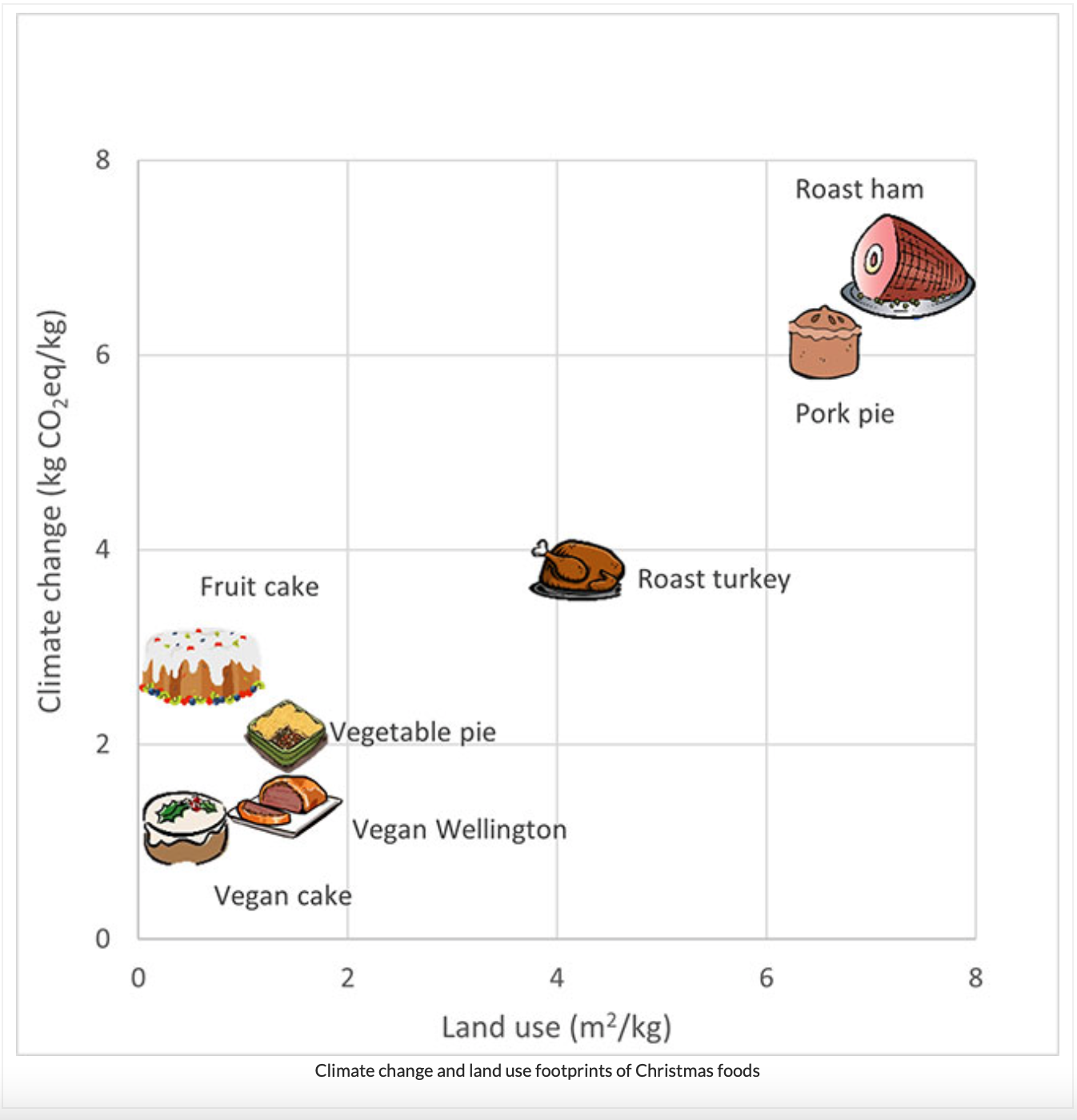Meat will not be on the menu for Thomas Elliot’s 2022 Christmas dinner. For the sake of climate and biodiversity, the environmental scientist and postdoctoral fellow at the École de Technologie Supérieure de l’Université du Québec in Montreal has opted for a vegan feast. So far, he has bought a pumpkin that he plans to roast and could make a vegan Wellington as a side.
He is calling others Do the same: “It’s Christmas. People like richer foods, and those foods tend to take more of the environment.”
In Canada, common Christmas foods like roast turkey, ham and pork pie have a “much bigger” impact on climate and biodiversity than the average omnivorous diet of Canadians, Elliot found. Vegan alternatives, vegetable pies or plant-based products have three to four times less impact on the environment.
Producing one kilogram of roast ham or pork pie requires about eight square meters of land and generates approximately seven kilograms of greenhouse gas pollution. Turkey has a slightly lower impact, requiring about four square meters of land to raise and generating approximately four kilograms of CO2 equivalent to raise one kilogram of birds.

By contrast, vegan alternatives like Vegetable Pie, Vegan Pie or Vegan Wellington use less than two square meters of land and generate approximately two kilograms of CO2 equivalent per kilogram of food to produce.
The typical diet of a Canadian eating meat and dairy emits 15 kilograms of CO2 per day, roughly the equivalent of burning 1.7 gallons of gasoline. It also uses up to 16 square meters of farmland to produce every kilogram of food. By contrast, a vegan diet that avoids meat and dairy uses about half the resources to produce a kilogram of food.
What people are reading

Elliot and a team of researchers from the École de Technologie Supérieure and McGill University used a model that integrated all aspects of food production into their assessment. It included the power and land needed for everything from the production of fertilizer to the disposal of waste and food scraps after a meal.

To keep the planet below 1.5C of warming, essential to mitigate the worst of climate change, everyone on the planet, on average, will need to limit their emissions to less than 2.9 tonnes of CO2 equivalent. Canadians emitted much more than that last year, generating on average 14.3 tons of CO2 equivalent per person. Food accounts for about a third of those emissions, Elliot’s research noted.
Environmental scientist Thomas Elliot is calling on Canadians to cut back on Christmas pork and turkey for the climate’s sake.
Cutting back on meat and dairy is a relatively easy way for people to reduce their emissions. Unlike structural sources of greenhouse gases like electricity or transportation, eating less meat is an easy way for people to drastically reduce the amount of greenhouse gases they want to emit, he explained.
But why point to the holiday cheer with warnings of a pig-driven climate meltdown?
“This type of work is supposed to raise (the question) of: How much impact do I want to have on the planet?” He explained. “More and more people are starting to get motivated by what’s good for the environment, as long as it’s delicious.”
